Search Results
Results for 'gender'
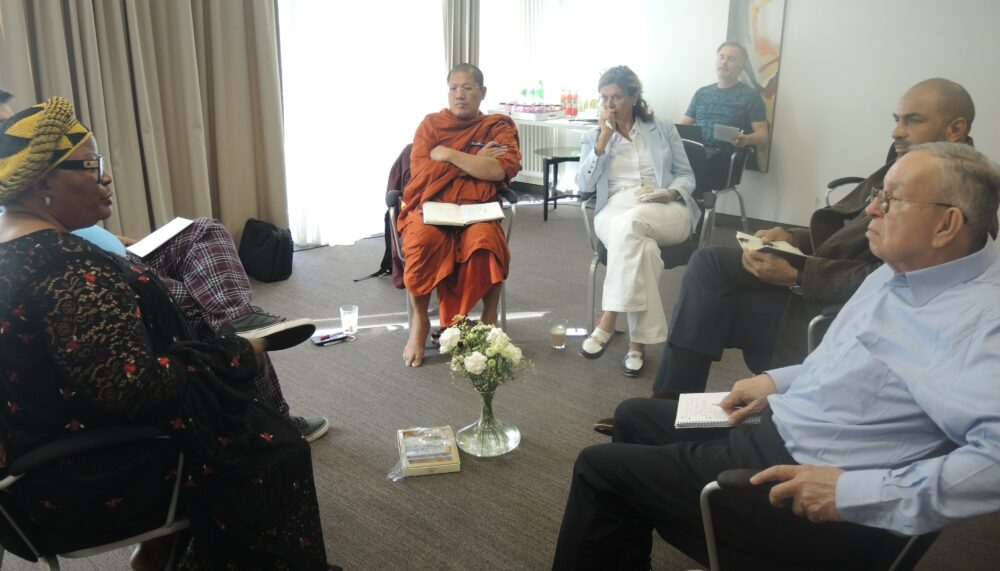
Video: Women faith-based mediators: Innovation through tradition?
Watch our online panel discussion on the role of women in faith-based mediation.
- event 18 Oct 2022
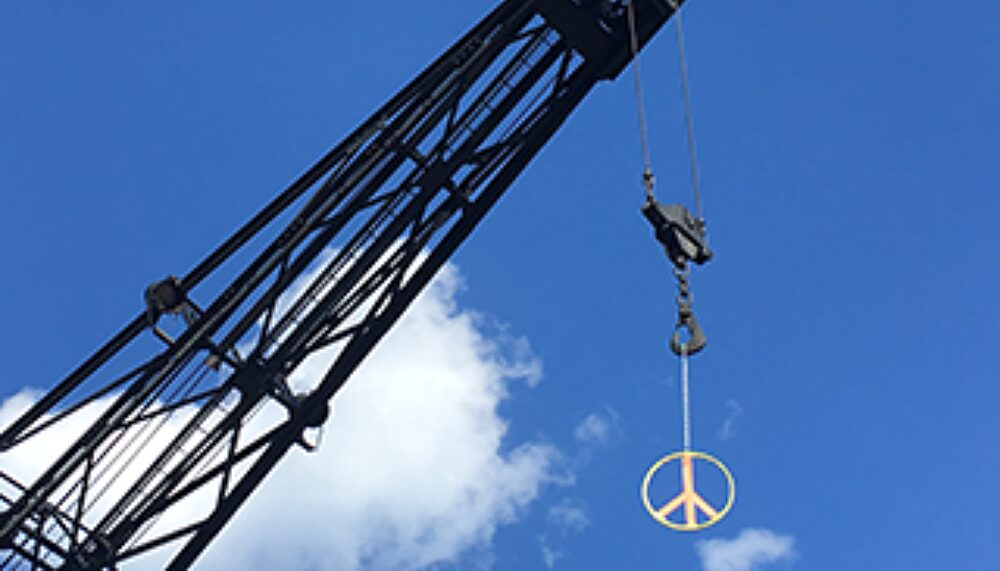
„Friedensbildung ist keine Feuerwehr.“Empfehlungen für die Zukunft der Friedensbildung
Eine Studie der Berghof Foundation zeigt, Friedensbildung ist wichtiger denn je. Ihre Ansätze müssen strukturell im Bildungssystem verankert werden.
- feature 4 Oct 2022

"Peace education is not a trouble shooter".Recommendations for the future of peace education
A study by the Berghof Foundation shows that peace education is more important than ever. Its approaches must be structurally anchored in the education system.
- feature 4 Oct 2022
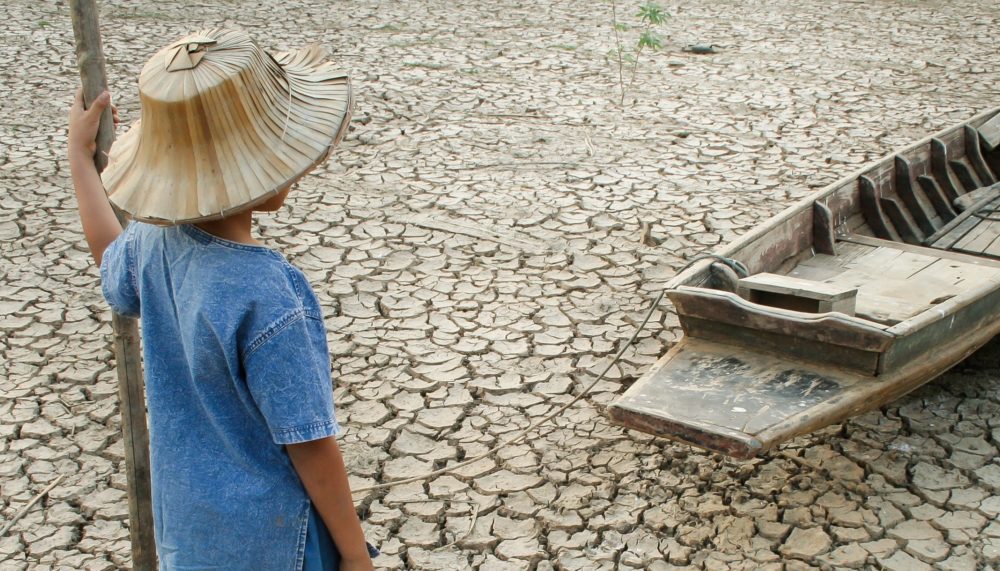
COP26, climate change and conflict.
In November, COP26 will convene for the most important summit yet to halt climate breakdown, and to prevent the threats climate change poses for sustainable peace.
- feature 27 Oct 2021
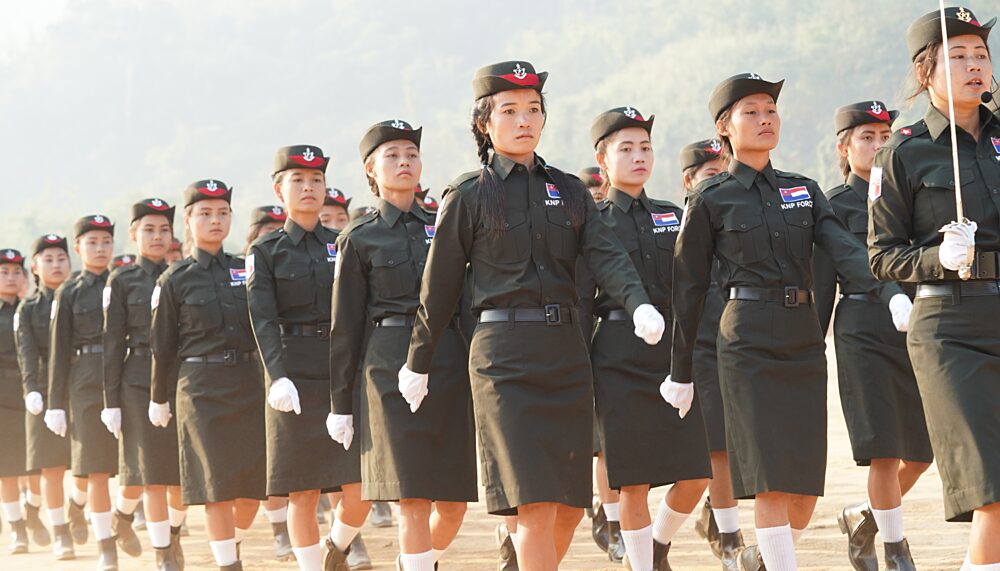
Video: No participation without protectionWomen’s rights in areas controlled by armed and political movements
Watch our event where experts discussed the participation and protection of women within political and armed groups in Myanmar.
- event 8 Dec 2022

لا مشاركة بدون حمايةحقوق المرأة في مناطق سيطرة الحركات المسلحة والسياسية
انضمي إلى حدثنا حيث سيناقش الخبراء مشاركة المرأة وحمايتها في المناطق التي تسيطر عليها الجماعات السياسية والمسلحة.
- event 8 Dec 2022

ကာကွယ်ပေးမှုမရှိလျှင် ပါဝင်မှု မရှိနိုင်ပါလက်နက်ကိုင်နိုင်ငံရေးအင်အားစု ထိန်းချုပ်ဒေသများရှိ အမျိုးသမီးအခွင့်အရေးများ
လက်နက်ကိုင်နိုင်ငံရေးအင်အားစု ထိန်းချုပ်ဒေသများရှိ အမျိုးသမီးများ ပါဝင်မှုနှင့် အကာအကွယ်ပေးရေးဆိုင်ရာ ဆွေးနွေးပွဲသို့ ပါဝင်ရန် ဖိတ်ကြားအပ်ပါသည်။
- event 8 Dec 2022
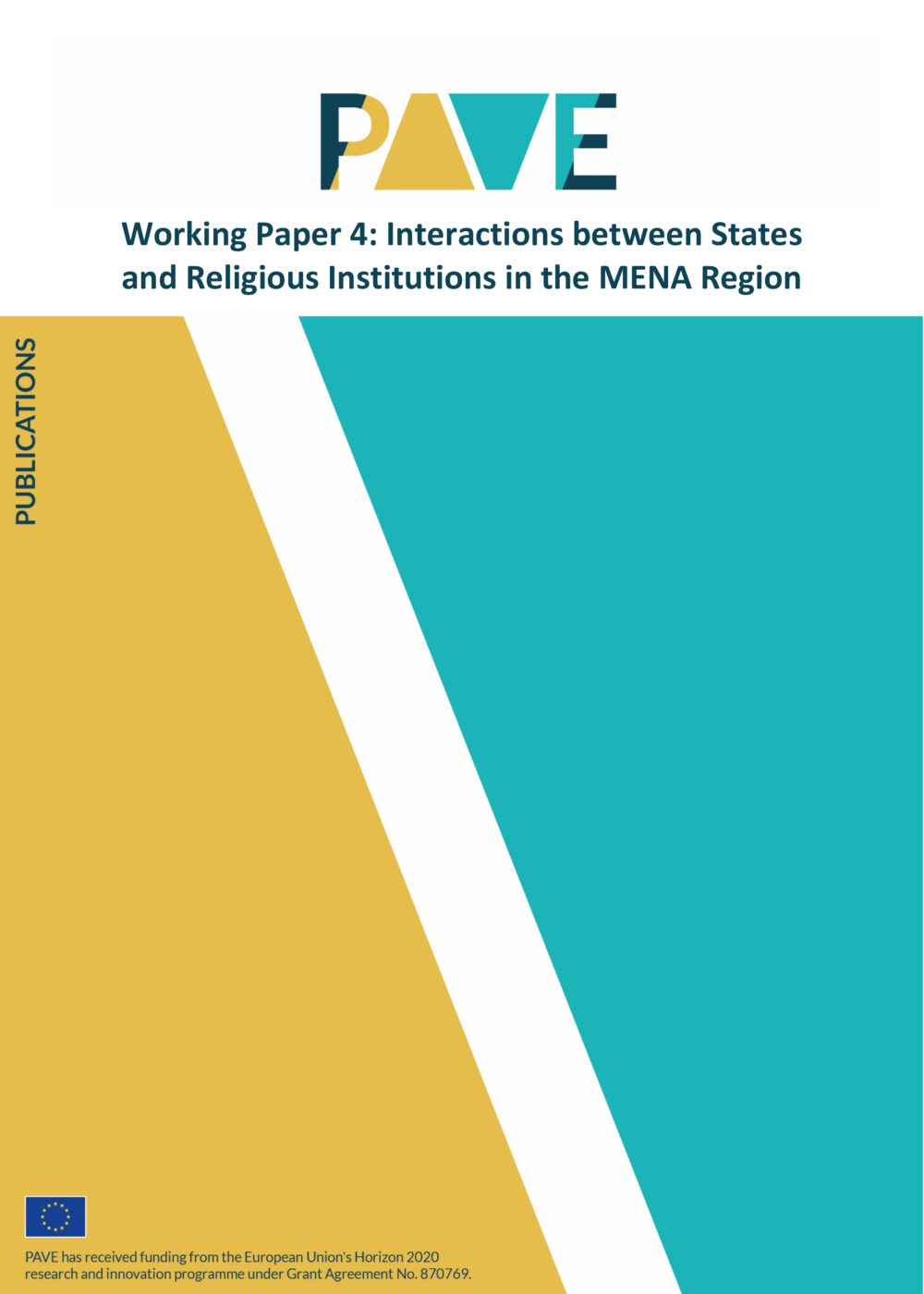
PAVE working paper 4:Interactions between states and religious institutions in the MENA region
The PAVE research project found that political and religious institutions in the MENA region have played an important role in the rise of violent extremism. Research data from five different field studies produced in Lebanon, Iraq and Tunisia on the topic are compiled in this report.
- Year 2022
- Author(s) Rudayna Al-Baalbaky, Faiza Ayed, Juline Beaujouan, Zouheir Ben Jannet, Sadok Damak, Hmida Ennaifer, Josep García Coll, Samiha Hamdi, Marie Kortam, Hassan Laaguir, Amjed Rasheed, Fethi Rekik, Javier Ruipérez Canales, Mohammed Sharqawi, Maher Zoghlami
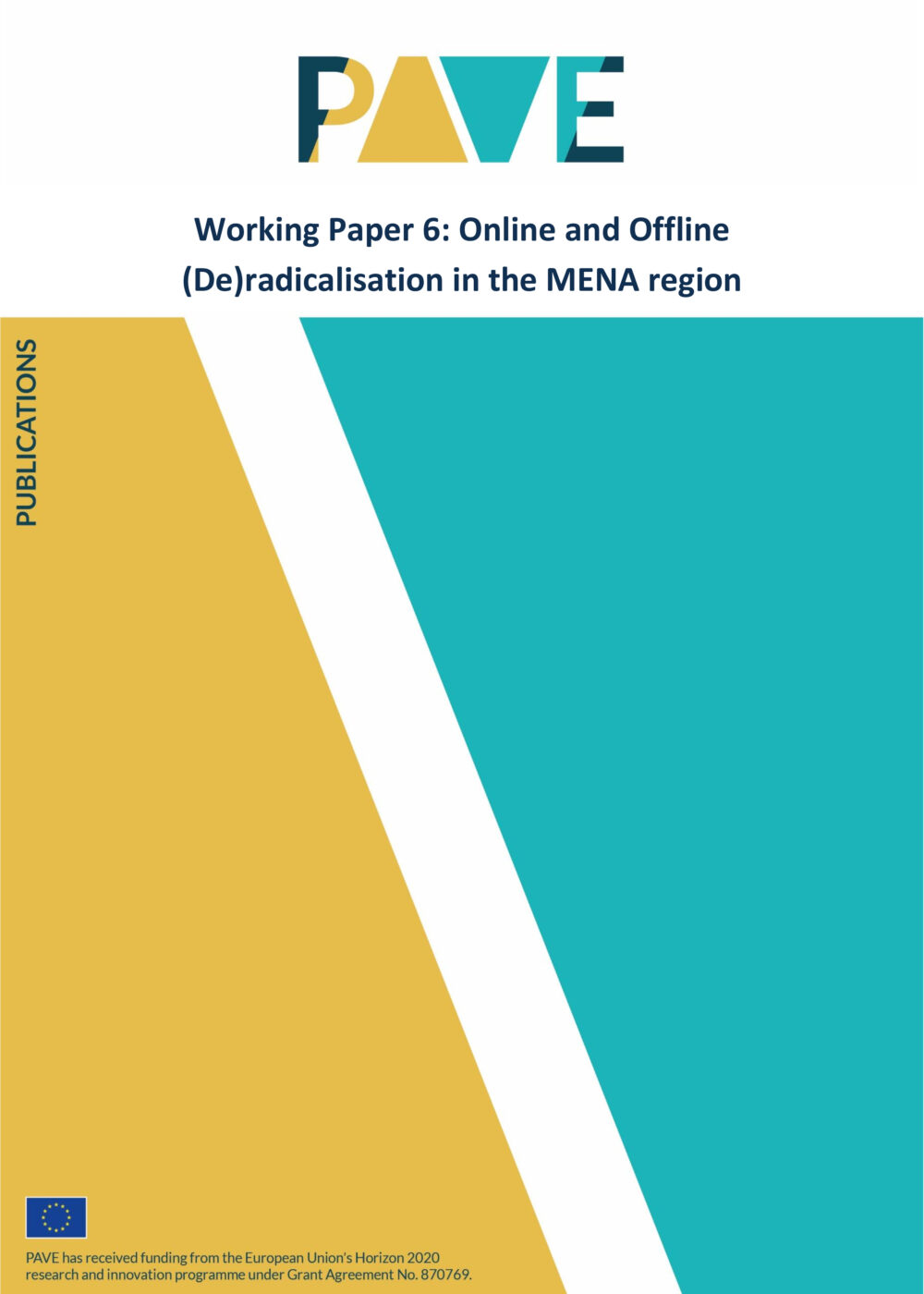
PAVE working paper 6:Online and offline (de-)radicalisation in the MENA region
Among four case studies implemented in local communities in Lebanon and Tunisia, two communities were identified as resilient against and two as vulnerable towards violent extremism. This report explains the results of these empirical studies that aimed to investigate the nature of community vulnerability and resilience against violent extremism, both in their offline and online manifestations.
- Year 2022
- Author(s) Faiza Ayed, Lara Azzam, Zouheir Ben Jannet, Sadok Damak, Maria El Sammak, Samiha Hamdi, Fethi Rekik, Youssef Salloum
